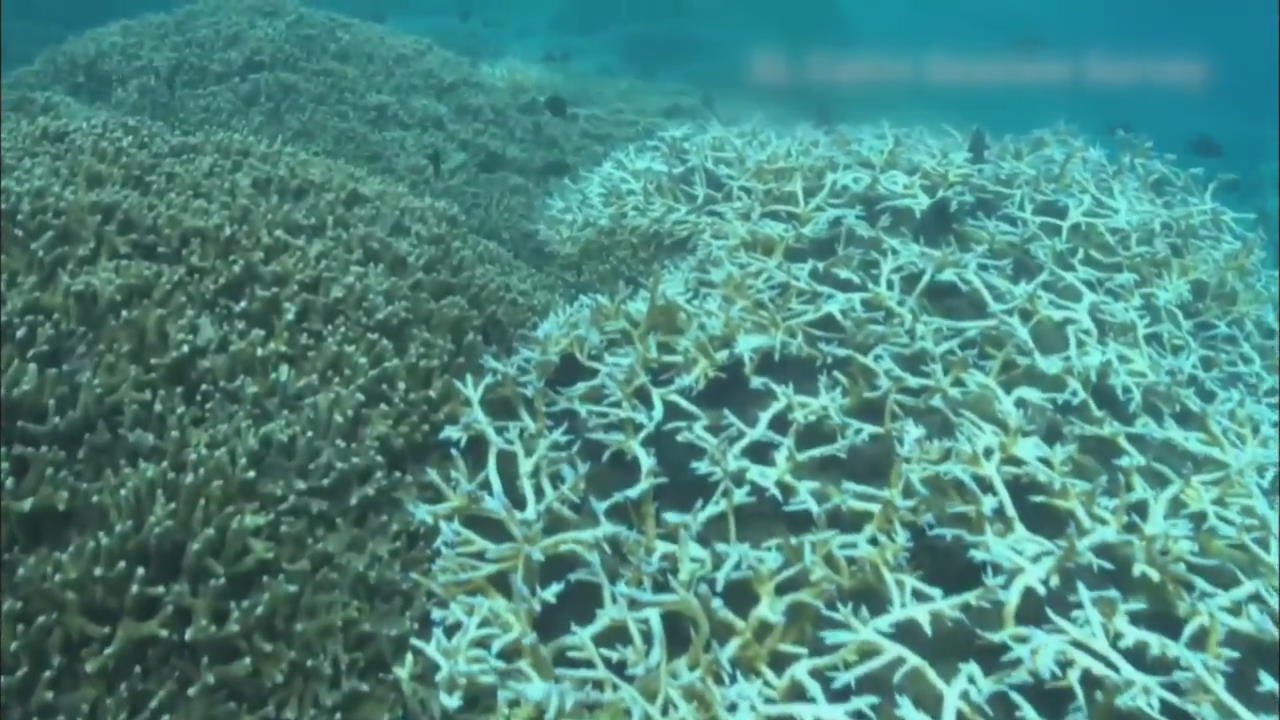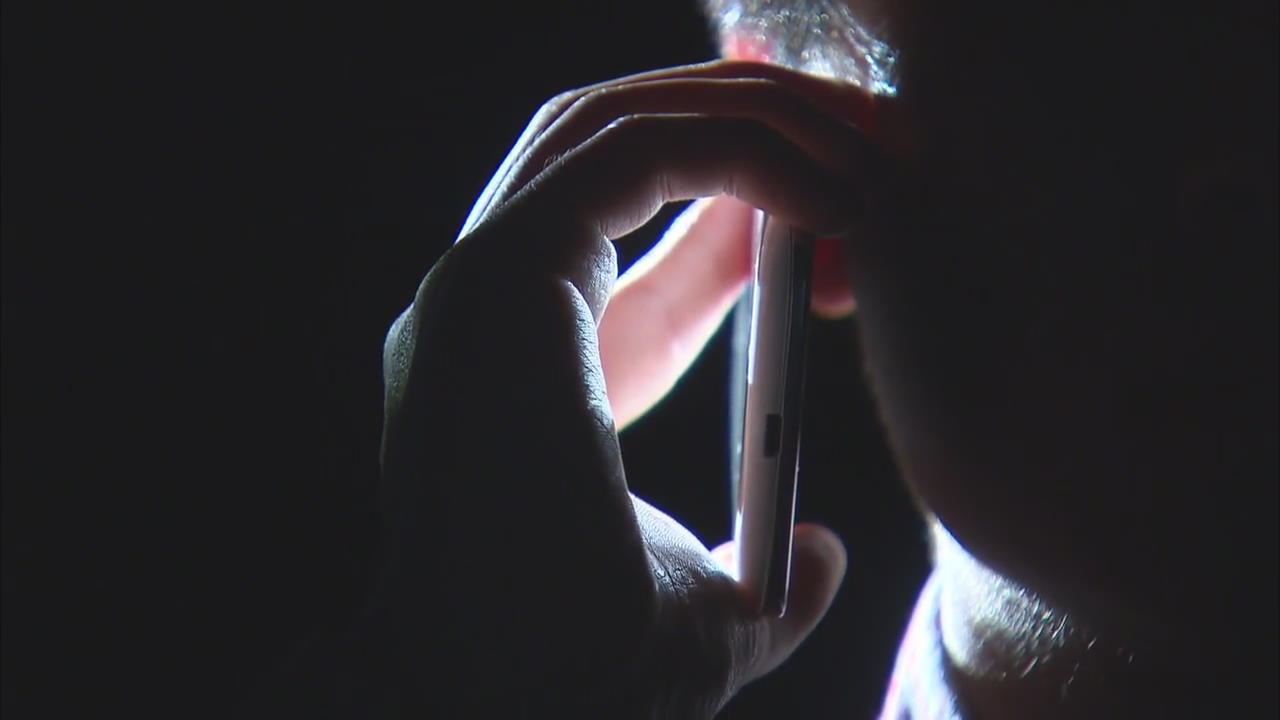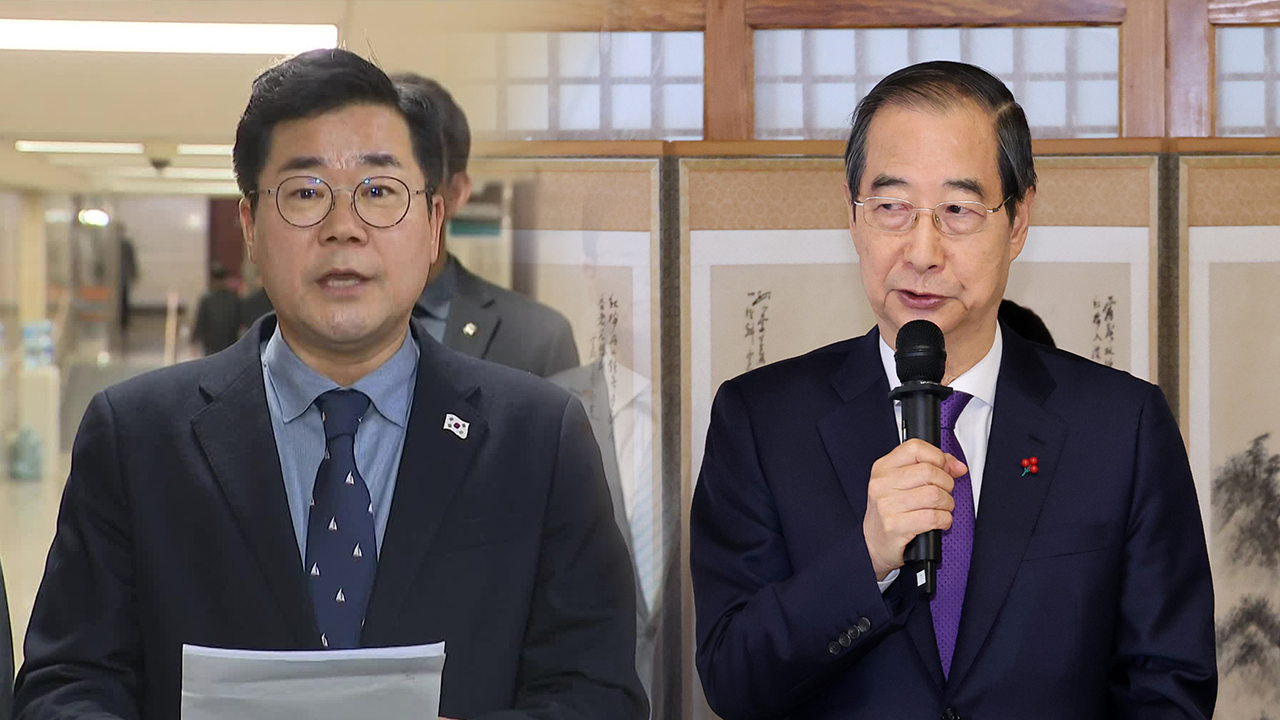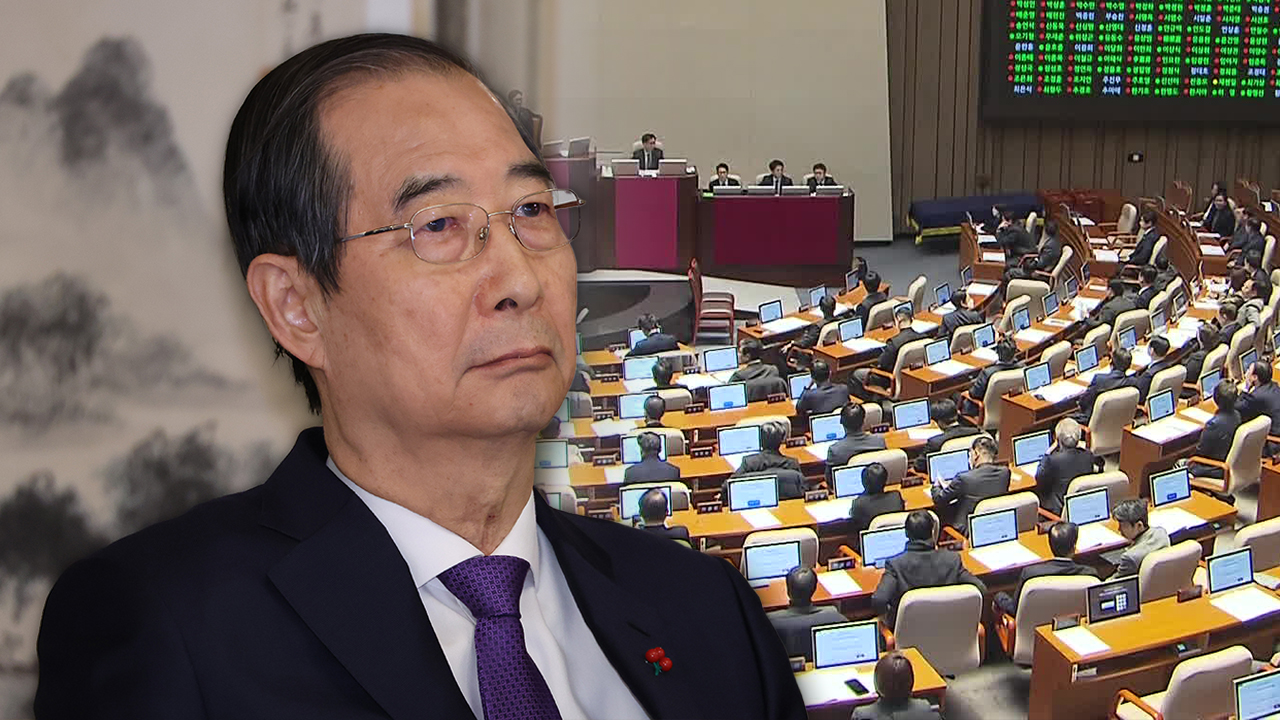Toxic Chemical
입력 2018.09.18 (15:19)
수정 2018.09.18 (15:26)
읽어주기 기능은 크롬기반의
브라우저에서만 사용하실 수 있습니다.
[Anchor Lead]
There is a consumer item that threatens the marine eco-system as much as plastic goods dumped into the ocean. Sunscreen. Experts say that a small amount of a paritcular chemical contained in sunscreen is damaging coral reefs under water and promoting their extinction.
[Pkg]
This is a colorful colony of coral reefs. Corals serve as the foundation of the marine eco-system, as 25 percent of marine organisms worldwide live near them. However, coral is disappearing quickly. It is due to worsening global warming and a rise in waste discharged into the ocean. There is a warning that only less than ten percent of coral across the world will be left by 2050 if the situation goes unchecked.
[Soundbite] Prof. Ruth Gates (University of Hawaii)
Sunscreen is one of the items that pose a threat to the life of coral. A material called oxybenzone is contained in most sunscreens on the market, since it is cheap and effective in blocking UV rays. Oxybenzone is a representative endocrine-disrupting compound and has harmful effects on coral even at a concentration of 62 parts per trillion or a trillionth. It bleaches and dries up coral to death, disrupting the eco-system. Roughly 14,000 tons of sunscreen flow into the ocean annually. With the situation exacerbating, the state of Hawaii announced a ban on the use of sunscreens containing oxybenzone at the beach starting from 2021. Korea needs to carry out an in-depth ecological study and devise measures to protect corals, as an endangered coral species has been found near the coast of Jeju.
There is a consumer item that threatens the marine eco-system as much as plastic goods dumped into the ocean. Sunscreen. Experts say that a small amount of a paritcular chemical contained in sunscreen is damaging coral reefs under water and promoting their extinction.
[Pkg]
This is a colorful colony of coral reefs. Corals serve as the foundation of the marine eco-system, as 25 percent of marine organisms worldwide live near them. However, coral is disappearing quickly. It is due to worsening global warming and a rise in waste discharged into the ocean. There is a warning that only less than ten percent of coral across the world will be left by 2050 if the situation goes unchecked.
[Soundbite] Prof. Ruth Gates (University of Hawaii)
Sunscreen is one of the items that pose a threat to the life of coral. A material called oxybenzone is contained in most sunscreens on the market, since it is cheap and effective in blocking UV rays. Oxybenzone is a representative endocrine-disrupting compound and has harmful effects on coral even at a concentration of 62 parts per trillion or a trillionth. It bleaches and dries up coral to death, disrupting the eco-system. Roughly 14,000 tons of sunscreen flow into the ocean annually. With the situation exacerbating, the state of Hawaii announced a ban on the use of sunscreens containing oxybenzone at the beach starting from 2021. Korea needs to carry out an in-depth ecological study and devise measures to protect corals, as an endangered coral species has been found near the coast of Jeju.
■ 제보하기
▷ 카카오톡 : 'KBS제보' 검색, 채널 추가
▷ 전화 : 02-781-1234, 4444
▷ 이메일 : kbs1234@kbs.co.kr
▷ 유튜브, 네이버, 카카오에서도 KBS뉴스를 구독해주세요!
- Toxic Chemical
-
- 입력 2018-09-18 15:19:10
- 수정2018-09-18 15:26:40

[Anchor Lead]
There is a consumer item that threatens the marine eco-system as much as plastic goods dumped into the ocean. Sunscreen. Experts say that a small amount of a paritcular chemical contained in sunscreen is damaging coral reefs under water and promoting their extinction.
[Pkg]
This is a colorful colony of coral reefs. Corals serve as the foundation of the marine eco-system, as 25 percent of marine organisms worldwide live near them. However, coral is disappearing quickly. It is due to worsening global warming and a rise in waste discharged into the ocean. There is a warning that only less than ten percent of coral across the world will be left by 2050 if the situation goes unchecked.
[Soundbite] Prof. Ruth Gates (University of Hawaii)
Sunscreen is one of the items that pose a threat to the life of coral. A material called oxybenzone is contained in most sunscreens on the market, since it is cheap and effective in blocking UV rays. Oxybenzone is a representative endocrine-disrupting compound and has harmful effects on coral even at a concentration of 62 parts per trillion or a trillionth. It bleaches and dries up coral to death, disrupting the eco-system. Roughly 14,000 tons of sunscreen flow into the ocean annually. With the situation exacerbating, the state of Hawaii announced a ban on the use of sunscreens containing oxybenzone at the beach starting from 2021. Korea needs to carry out an in-depth ecological study and devise measures to protect corals, as an endangered coral species has been found near the coast of Jeju.
There is a consumer item that threatens the marine eco-system as much as plastic goods dumped into the ocean. Sunscreen. Experts say that a small amount of a paritcular chemical contained in sunscreen is damaging coral reefs under water and promoting their extinction.
[Pkg]
This is a colorful colony of coral reefs. Corals serve as the foundation of the marine eco-system, as 25 percent of marine organisms worldwide live near them. However, coral is disappearing quickly. It is due to worsening global warming and a rise in waste discharged into the ocean. There is a warning that only less than ten percent of coral across the world will be left by 2050 if the situation goes unchecked.
[Soundbite] Prof. Ruth Gates (University of Hawaii)
Sunscreen is one of the items that pose a threat to the life of coral. A material called oxybenzone is contained in most sunscreens on the market, since it is cheap and effective in blocking UV rays. Oxybenzone is a representative endocrine-disrupting compound and has harmful effects on coral even at a concentration of 62 parts per trillion or a trillionth. It bleaches and dries up coral to death, disrupting the eco-system. Roughly 14,000 tons of sunscreen flow into the ocean annually. With the situation exacerbating, the state of Hawaii announced a ban on the use of sunscreens containing oxybenzone at the beach starting from 2021. Korea needs to carry out an in-depth ecological study and devise measures to protect corals, as an endangered coral species has been found near the coast of Jeju.
이 기사가 좋으셨다면
-
좋아요
0
-
응원해요
0
-
후속 원해요
0















![[단독] “국방정보본부장도 <br>‘계엄’ 논의 때 배석”…공수처 진술 확보](/data/layer/904/2024/12/20241226_FJUqup.jpg)

이 기사에 대한 의견을 남겨주세요.